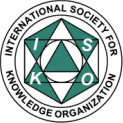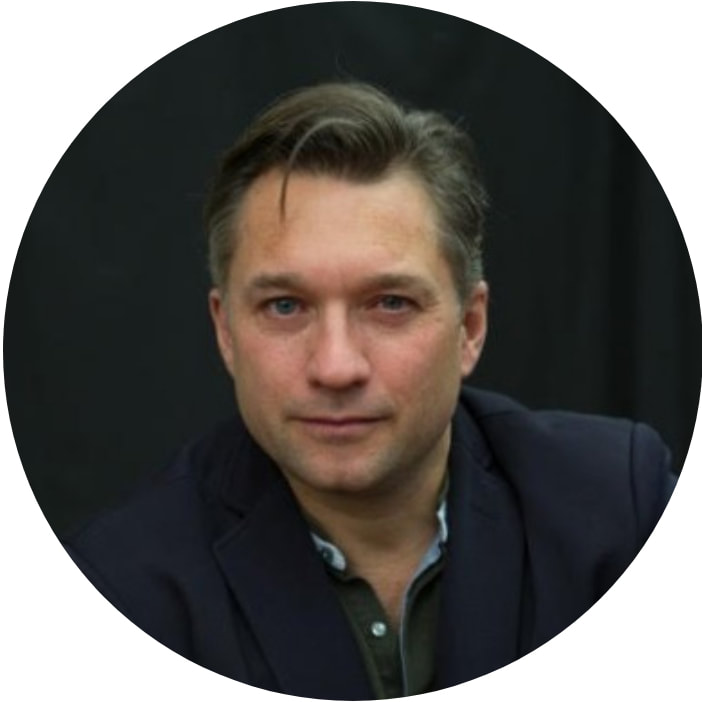What Have we learned from the covid pandemic? A HYBRID knowledge cafe with dr richard Claydon
The COVID pandemic changed our lives. It also changed our organisations. Some of the change was bad. Some was good. As we move into the post-pandemic world, we need to work out what we've learned from it all.
In the early stages of the pandemic, Richard Claydon's firm EQ Lab ran a global narrative analytics research project in collaboration with Phrasia, a company with an AI-based narrative analytics tool, to uncover the impact of the pandemic on people's lives.
Richard reports:
"We captured their thoughts and feelings about the present, and hopes and fears about the future. We found that, despite the fear of getting infected, many people were thriving, feeling more productive, more engaged and in better control of their well-being then they had been for years. Others were experiencing the opposite. We also discovered that people were hopeful that leaders would learn something meaningful from this experience, but doubtful, even cynical, that this would be the case.
Wider data illustrated that the first stages of the pandemic had seen a surge of productivity and engagement unparalleled in the 21st Century. It was clear that COVID had presented leaders with a moment full of re-imaginative potential. Did they seize it? Sadly, it seems not, with later stage data suggesting previous trends of low productivity and low engagement had reasserted themselves. Today, we are hearing calls from leaders to "get back to the office" clashing with employee desires to work in a more hybrid manner. It seems we might have lost the re-imaginative opportunity completely."
In this hybrid knowledge cafe, with presenter and participants in a face to face setting in Singapore, and with online participants and facilitators working in parallel, we will:
You can also use this hybrid knowledge cafe to explore some of the issues and opportunities involved in hybrid collaboration and knowledge sharing!
AGENDA:
2.30pm Welcome and networking F2F attendees (rolling arrival for remote attendees - to arrive by 2.45pm SGT/ 7.45am UK)
2.45pm Richard Claydon: what happened to productivity and engagement during and post pandemic, and why?
3.15pm Facilitator explains the format for a knowledge cafe: tables appoint table hosts responsible for taking notes - take note of the three focus questions (below).
3.25pm Breakouts : round table discussions and online breakout groups to explore the following focus questions:
4.00pm Separate debriefs: the in-room facilitator will debrief the F2F groups, while the online facilitator debriefs the virtual breakout groups.
4.15pm In-room facilitators and online facilitators compare notes on the key points from each set of discussions, open to Q&A from both audiences
4.30pm Online session closes; F2F session concludes with refreshments and networking.
In the early stages of the pandemic, Richard Claydon's firm EQ Lab ran a global narrative analytics research project in collaboration with Phrasia, a company with an AI-based narrative analytics tool, to uncover the impact of the pandemic on people's lives.
Richard reports:
"We captured their thoughts and feelings about the present, and hopes and fears about the future. We found that, despite the fear of getting infected, many people were thriving, feeling more productive, more engaged and in better control of their well-being then they had been for years. Others were experiencing the opposite. We also discovered that people were hopeful that leaders would learn something meaningful from this experience, but doubtful, even cynical, that this would be the case.
Wider data illustrated that the first stages of the pandemic had seen a surge of productivity and engagement unparalleled in the 21st Century. It was clear that COVID had presented leaders with a moment full of re-imaginative potential. Did they seize it? Sadly, it seems not, with later stage data suggesting previous trends of low productivity and low engagement had reasserted themselves. Today, we are hearing calls from leaders to "get back to the office" clashing with employee desires to work in a more hybrid manner. It seems we might have lost the re-imaginative opportunity completely."
In this hybrid knowledge cafe, with presenter and participants in a face to face setting in Singapore, and with online participants and facilitators working in parallel, we will:
- explore the research and data that explains how and why productivity and engagement surged so spectacularly in the early stages of the pandemic;
- discover why this initial surge dissolved, how old ways of working reinjected themselves into the digital realm, and the impact of that on our lives;
- invite you to identify ways in which we can re-embrace this learning and use it to help leaders run organisations that better integrate with our practices of working and patterns of living.
You can also use this hybrid knowledge cafe to explore some of the issues and opportunities involved in hybrid collaboration and knowledge sharing!
AGENDA:
2.30pm Welcome and networking F2F attendees (rolling arrival for remote attendees - to arrive by 2.45pm SGT/ 7.45am UK)
2.45pm Richard Claydon: what happened to productivity and engagement during and post pandemic, and why?
3.15pm Facilitator explains the format for a knowledge cafe: tables appoint table hosts responsible for taking notes - take note of the three focus questions (below).
3.25pm Breakouts : round table discussions and online breakout groups to explore the following focus questions:
- What was your experience in relation to productivity and engagement (a) during the pandemic (b) in the post-pandemic return to the workplace?
- What do you see as the most important lessons and practices we can take from the pandemic for future work?
- What is the role of knowledge management and knowledge managers in facilitating a more productive and engaged workplace after the lessons of the pandemic?
4.00pm Separate debriefs: the in-room facilitator will debrief the F2F groups, while the online facilitator debriefs the virtual breakout groups.
4.15pm In-room facilitators and online facilitators compare notes on the key points from each set of discussions, open to Q&A from both audiences
4.30pm Online session closes; F2F session concludes with refreshments and networking.
|
Speaker:
Dr Richard Claydon is the co-founder of EQ Lab, a Hong Kong-based training, consulting and advisory firm that specialises in developing extended intelligence skills in leaders and organisations. Richard is currently based in Singapore. With over 25 years of experience in leadership development and executive coaching, Richard has worked with clients in various industries to help them identify and overcome barriers that hinder performance and collaboration. He is a certified practitioner in several leadership assessment tools and has published articles on leadership, applied intelligence and high performance during organisational transformation in various industry publications. Richard also teaches the future-focused leadership module on Macquarie Business School's Global MBA programme. In addition to his regular consulting work, Richard has also been involved in helping organisations respond to the COVID-19 pandemic. He has written articles and given talks on topics such as remote working, adapting leadership patterns to different stages of the pandemic, and the importance of human connection in times of uncertainty. Richard's insights and expertise have been valuable resources for leaders and organisations navigating the challenges posed by the pandemic. |
this event is postponed
ISKO Singapore is registered in Singapore. Society registration number T15SS0160B
By continuing to use the ISKO Singapore website you are agreeing that ISKO Singapore may collect, use and disclose your personal data obtained by ISKO Singapore as a result of your use of the ISKO Singapore website. Please consult our data protection policy, including how you may access and correct your personal data or withdraw consent to the collection, use or disclosure of your personal data.
By continuing to use the ISKO Singapore website you are agreeing that ISKO Singapore may collect, use and disclose your personal data obtained by ISKO Singapore as a result of your use of the ISKO Singapore website. Please consult our data protection policy, including how you may access and correct your personal data or withdraw consent to the collection, use or disclosure of your personal data.


